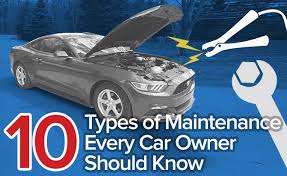
Car Tips for Every Vehicle Owner
As a vehicle owner, it’s essential to take good care of your car to ensure its longevity and performance. Here are some valuable car tips that every owner should keep in mind:
Regular Maintenance
Make sure to follow the manufacturer’s recommended maintenance schedule for your car. Regular oil changes, tire rotations, and fluid checks can help prevent costly repairs down the line.
Check Your Tires
Monitor your tire pressure regularly and ensure they are properly inflated. Underinflated tires can affect fuel efficiency and handling, while overinflated tires can lead to uneven wear.
Keep It Clean
Regularly wash and wax your car to protect the paint and prevent rust. Clean the interior regularly to maintain a comfortable and pleasant driving environment.
Drive Safely
Follow traffic rules, avoid aggressive driving behaviour, and always wear your seatbelt. Safe driving not only protects you but also extends the life of your vehicle.
Monitor Warning Lights
If any warning lights appear on your dashboard, don’t ignore them. Addressing issues promptly can prevent further damage and costly repairs.
Plan Ahead for Long Trips
Prior to embarking on a long journey, check your car’s fluids, brakes, lights, and tires. Carry an emergency kit with essentials like water, snacks, a flashlight, and basic tools.
Find a Reliable Mechanic
Select a trustworthy mechanic or service centre for routine maintenance and repairs. Establishing a good relationship with a professional can give you peace of mind when it comes to caring for your car.
By following these car tips, you can ensure that your vehicle remains in top condition and serves you well for years to come. Remember that proper care and maintenance are key to enjoying a safe and reliable driving experience.
4
- What should be in every vehicle?
- How can I maximize my car life?
- What is the most common thing in all vehicles?
- How do I choose my own car?
What should be in every vehicle?
Every vehicle should be equipped with essential items to ensure safety and preparedness on the road. These items include a spare tire, jack, and lug wrench for changing a flat tyre, as well as jumper cables for jump-starting a dead battery. It is also advisable to carry a basic toolkit containing tools like screwdrivers, pliers, and wrenches for minor repairs. Other important items to have in every vehicle include a first aid kit, emergency warning triangles or flares, a flashlight with extra batteries, and a bottle of water in case of emergencies. By having these essentials in your vehicle, you can be better equipped to handle unexpected situations while driving.
How can I maximize my car life?
To maximise the life of your car, it is essential to prioritise regular maintenance and care. Adhering to the manufacturer’s recommended service schedule, including oil changes, fluid checks, and tire rotations, can significantly prolong your vehicle’s lifespan. Keeping your car clean, driving safely, and addressing any warning lights promptly are also crucial steps in ensuring longevity. Planning ahead for long trips and finding a reliable mechanic for maintenance and repairs can further contribute to maximising your car’s life span. By following these car tips diligently, you can enjoy a well-maintained vehicle that serves you reliably for many years to come.
What is the most common thing in all vehicles?
The most common thing in all vehicles is the need for regular maintenance and care. Regardless of make, model, or age, every vehicle requires attention to ensure optimal performance, longevity, and safety on the road. From checking fluid levels and tyre pressure to addressing warning lights and scheduling routine service appointments, staying proactive in maintaining your vehicle is crucial for its overall health and reliability. By prioritising regular upkeep and following recommended maintenance guidelines, vehicle owners can help extend the lifespan of their cars and enjoy a smoother driving experience.
How do I choose my own car?
Choosing your own car is an important decision that requires careful consideration of various factors. To select the right car for your needs, start by defining your budget and determining what features are essential to you. Consider aspects such as fuel efficiency, size, performance, safety features, and maintenance costs. Research different makes and models, read reviews from both experts and owners, and test drive several cars to get a feel for how they handle on the road. Additionally, think about your lifestyle and how the car will fit into it – whether you need a family-friendly vehicle, a fuel-efficient commuter car, or a sporty model for weekend drives. By taking the time to evaluate your priorities and conducting thorough research, you can make an informed decision when choosing your own car.
